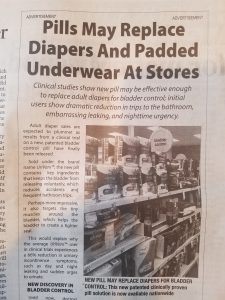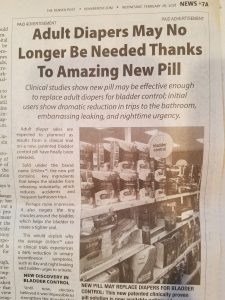Once an Endangered Species, Journalists Make a Comeback at the Colo Capitol
Thursday, April 18th, 2019Like endangered fish that seemed destined to disappear from a once-important lake, journalists have made a miraculous comeback at Colorado’s Capitol, which is now teeming with about the same number of reporters who were assigned there from the 1960s through the 1990s.
“I would have to say, yes, your perception is correct,” said Charles Ashby, Capitol reporter for the Grand Junction Sentinel, when asked if his species of journalist was thriving at the Capitol, compared to the old days. “While I can’t speak on how many people were around in the 60s, 70s and 80s (because I may be the Capitol dean and Oldnewsman, I’m not THAT old), my understanding is there are about the same or maybe slightly fewer people covering the Capitol these days.”
Ashby estimated that when he started at the legislature in 1997, the Capitol press corps, which is the group of journalists assigned to cover the general assembly, consisted of three to four from The Denver Post, two each from the Rocky Mountain News, the Colorado Springs Gazette, and the Associated Press, and one each from Pueblo Chieftain and Longmont Times-Call—with an “occasional” reporter from Boulder Daily Camera and “less occasionally” from the Fort Collins Coloradoan and Grand Junction Sentinel. Other reporters would “parachute in for specific stories,” said Ashby.
That’s a total of 11 to 15 Capitol reporters in the late 1990s, before the numbers started to decline in the next decade.
Today’s list totals at least 17 reporters.
Colorado Independent: Two.
Colorado Politics: Two.
Denver Post: Two (versus a high of five in the 1960s and 1970s)
Colorado Public Radio: Two.
Colorado Sun: Two.
Associated Press: One.
Chalkbeat: One.
Denver Business Journal: One
Denverite/CPR: One.
Durango Herald: One.
Grand Junction Sentinel: One.
Rocky Mountain Community Radio: One.
“The competition for office space around here this year has been pretty intense, because there just isn’t enough room to accommodate everybody,” said the Capitol’s second-longest-serving journalist Marianne Goodland of Colorado Politics, an online and print weekly.
That wasn’t the case over the past 15 years, when the Denver and rural dailies were cutting their Capitol bureaus—and online platforms weren’t filling the gap.
“A lot of publications stopped sending people here around the time the Rocky Mountain News closed, so you had this dearth of coverage of the legislature, and it’s just now on the rebound to where it was before,” says Goodland, who started covering the legislature in 1998. “It’s a different business model with a lot of niche reporting for which there is a clear demand. Everybody is growing.”
The number of journalists in the Capitol press corps doesn’t include reporters for local television news stations, who have a bigger presence at the legislature than they did during the heyday of the print dailies, according to longtime journalists.
Nor does the Capitol press corps include the many journalists, from The Denver Post, Colorado Politics, Colorado Public Radio, the Colorado Sun, and elsewhere, who drop in for a story or two.
“We have John Frank and Jesse Paul at the Capitol full-time,” Colorado Sun Editor Larry Ryckman said via email. “We have freelancers Brian Eason and Sandra Fish covering state government issues part-time, and we have other full-time reporters — including Jennifer Brown, John Ingold and Chris Osher — who cover issues at the Capitol from time to time.”
Kevin Dale, the Executive Editor at Colorado Public Radio, described a similar approach.
“We have two full-time reporters: Bente Birkeland and Sam Brasch,” Dale said via email. “We also send other beat reporters to monitor bills that are important to that beat. We now have a photographer and often send them there. Last, because we just acquired Denverite, we are making use of their statehouse reporter Esteban Hernandez, though you might already be accounting for him with Denverite.”
Could we have arrived at the surreal situation where Colorado has too many reporters at the Capitol, given that other critical beats, like municipal government, education, courts, etc., aren’t getting the attention they deserve–or not attention at all?
“Media outlets rightly believe that what happens in the Legislature greatly impacts their readers, and therefore is important to follow and report on.” Ashby emailed me. “And I wouldn’t say there is too much emphasis on the Legislature over local government coverage. For example, I’ve had to remain in Grand Junction more often than normal this session because of some turnover here. While they are seeking a new county government reporter, I have spent the past several weeks covering both county government and the Legislature.”
Former Rocky reporter Lynn Bartels, who started covering the legislators in the year 2000, says the legislative coverage now is “overwhelming.”
“There’s almost too much to read in the morning,” Bartels told me, explaining that she will open just one of many morning emails from the outlets, look up, and find that she “hasn’t gotten any of her work done.”
“There is an amazing concentration on the Capitol, and I sometimes think that’s to the detriment of other beats,” she said, explaining that the Rocky had a Denver Public Schools reporter, a suburban reporter, police, higher education, religion, city hall, and more.
Maybe in an ideal world, you’d spread the journalistic love across the community, but alas it doesn’t work that way.
So let’s just accept this as great news for journalism and Colorado—and appreciate it while it lasts.









 A flock of journalists, from an array of media outlets, covered a rally of about 100 people at The Denver Post headquarters today, pointing cameras at marching and chanting Post reporters, who called on the newspaper’s hedge-fund owner, Alden Global, to find a buyer who cares about journalism and the community.
A flock of journalists, from an array of media outlets, covered a rally of about 100 people at The Denver Post headquarters today, pointing cameras at marching and chanting Post reporters, who called on the newspaper’s hedge-fund owner, Alden Global, to find a buyer who cares about journalism and the community.
